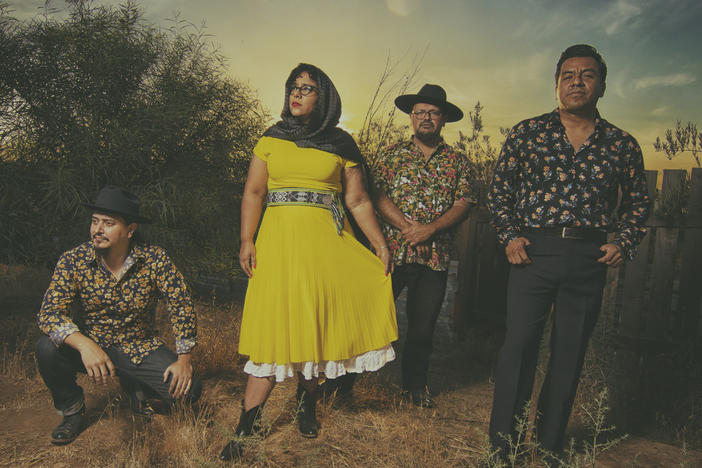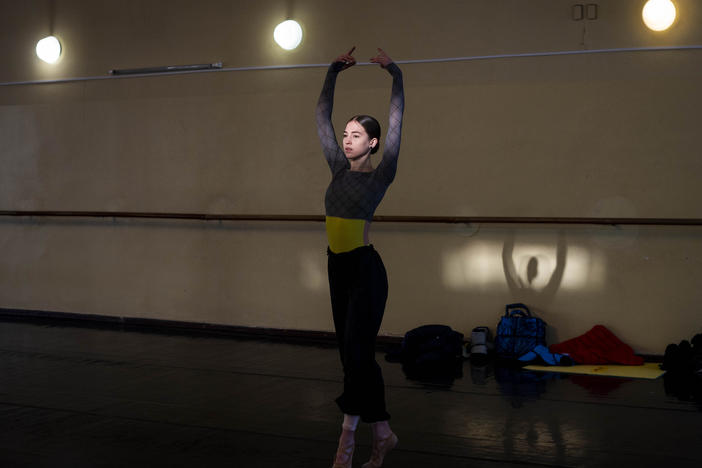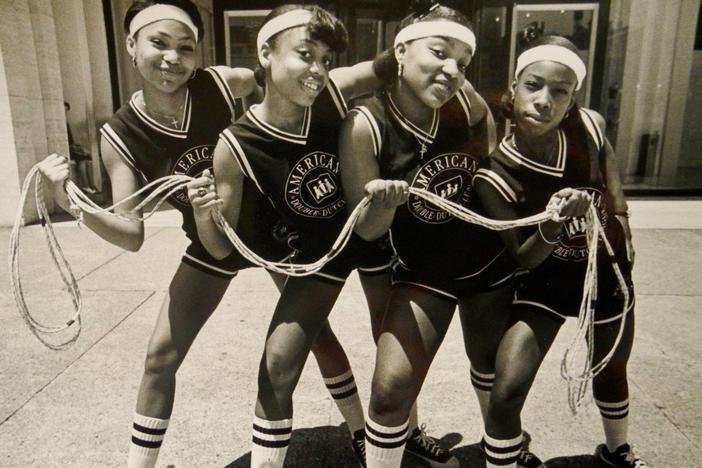Section Branding
Header Content
How Russian musicians are raising money for Ukraine
Primary Content
Since 2008 the JetLAG Festival has showcased Russian, Slavic and East European music in New York's Catskill Mountains. The organizers considered canceling the gathering this year, a move two other Russian diaspora musical gatherings made this summer on the east coast. But after resolving to raise funds for relief efforts in Ukraine, they decided to carry on with the show.
Several subcultures collide at JetLAG. Every summer major Russian acts - performing rock, reggae and cabaret, are flown in to play. But this year they weren't able to get visas to perform at the festival.
"That is a shame," said JetLAG's creative director, Pavel Lion, who performs as Psoy Korolenko. Lion used to be based in Moscow.
Around 2,800 people attended this year, many from the New York and Boston areas. 500 of the attendees were performing artists, volunteers or people running workshops in crafts, theater and yoga.
Tents and RVs were set up and kids rode around the 300-acre campsite on bicycles, all a stone's throw from the East Branch of the Delaware River, which was icy cold but not deep enough to swim in.
At night, festival-goers were decked out in see-through, colorful rain gear and instruments for The Emperor Norton's Stationary Marching Band were decorated with LEDs as they played in the dark.
Two performers at the festival decided to flee Russia because of the war in Ukraine. Alyosha Levstein, 24, left his job as a graphic designer in Moscow and now he lives on a farm in Maryland with friends of his grandmother, a prominent lawyer.
"It's not an easy decision to stay here," Levstein told NPR. "Starting work, finding new people, renting [an apartment], all of that stuff that I have to deal with right now, and apparently I don't really have a clue how to deal with it."
Bass player Vitaly Prismototrov fled Russia shortly before the war started and spent time in a detention camp after crossing into Arizona from Mexico. At JetLAG, Prismototrov played with a Russian-speaking band from California called the Flying Balkan Laikas. He was a last-minute addition to the ensemble.
Some of the key people at JetLAG have been devoting their time to aiding war-ravaged Ukraine. Co-creative director Alice Feldman left her job at a talent agency in Western Massachusetts to work with the Global Disaster Relief Team, a new non-profit. And Daniil Cherkassky, a Chicago-based performance artist who was born in Kyiv, co-founded Ukraine TrustChain which has raised $1.2 million to evacuate and feed 36,000 Ukrainians, an effort that continues to this day.
Cherkassky told NPR that he noticed that the war had affected campfire singing at JetLAG this year because Russian songs are now deemed toxic in some circles. For years Cherkassky has sung old Soviet propaganda songs. But the 39-year-old performer decided that the material was inappropriate at this point.
"It used to be funny to sing about the communist regime's fantasies about colonizing other stars because there was a distance," he explained. "It was in the past. The Soviet Union has collapsed, so it felt like a content that was safe to use and now it's not."
Instead, Cherkassky sang traditional Ukrainian folk songs at JetLAG. He said that at times he was crying as he sang.
Copyright 2022 NPR. To see more, visit https://www.npr.org.
Bottom Content








